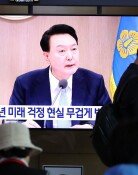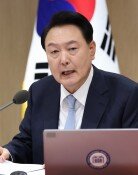Labor unions on strike amid economic crisis
Labor unions on strike amid economic crisis
Posted July. 03, 2018 08:24,
Updated July. 03, 2018 08:24
Hyundai Motor’s labor union voted to strike Monday as the wage increase proposed by the company (an increase of 35,000 won a month) fell short of its demand (an increase of 116,276 won a month). It would be the seventh strike in a row since 2012 if the labor union pushed ahead with strike this year. Going into the second half of this year, the shipbuilding industry is troubled with labor strikes as well. The labor union of the Hyundai Heavy Industries has filed for mediation with the National Labor Relations Commission after it called a halt to negotiation with the company on June 20. The labor union of Daewoo Shipbuilding & Marine Engineering is holding a strike vote for two days from Tuesday.
To be sure, workers are entitled to stage a strike. But it is regrettable to see these labor strikes taking place given the circumstances Korea’s manufacturing sector is in. Hyundai Motor’s operating profit in the first quarter of this year fell by 46 percent compared to the same period last year. If the United States imposes a 25 percent tariff on imported cars, its impact on our economy will be tremendous. Moreover, Hyundai Heavy Industries has not won a single order for the past 43 months and Daewoo shipping, which is staying afloat thanks to the injection of taxpayers’ money, is faced with downsizing.
Last year, labor strike cost Hyundai Motor 1.6 trillion won in production setback. The figure was 3.1 trillion won in 2016. It makes one speechless to see labor unions demanding a wage increase while inflicting a huge loss to their company with their habitual strikes. It makes sense for them to share the burden considering the damage they have done to the company. The same can be said to Hyundai Heavy Industries, which is failing to win contracts as their workers receive an hourly wage that is 2.6 times higher than their counterparts in Singaporean companies.
In the end, the root cause of this situation lies in the system, which is favorable to the labor. Whenever there is a strike, companies have opted to satisfy the labor union’s demands to minimize the damage since alternative work is not allowed in Korea. Korea is the only country among the OECD member nations that prohibits alternative work. A lockout is also ineffective when workplace occupation during strikes has become rampant in Korea. If this system is not corrected, habitual strikes by workers will not disappear either. Without labor reform, labor unions will continue to “abuse their right to stage a strike.”
Headline News
- Israel prepares for retaliation against Iran
- Samsung reclaims top spot, surpassing Apple in smartphone market
- 77% of Koreans in 20s and 30s are 'Kangaroo Tribe' due to job crisis
- KBO referees embroiled in controversy over ABS decision concealment
- Inflation, oil price surge put double shock on global economy





